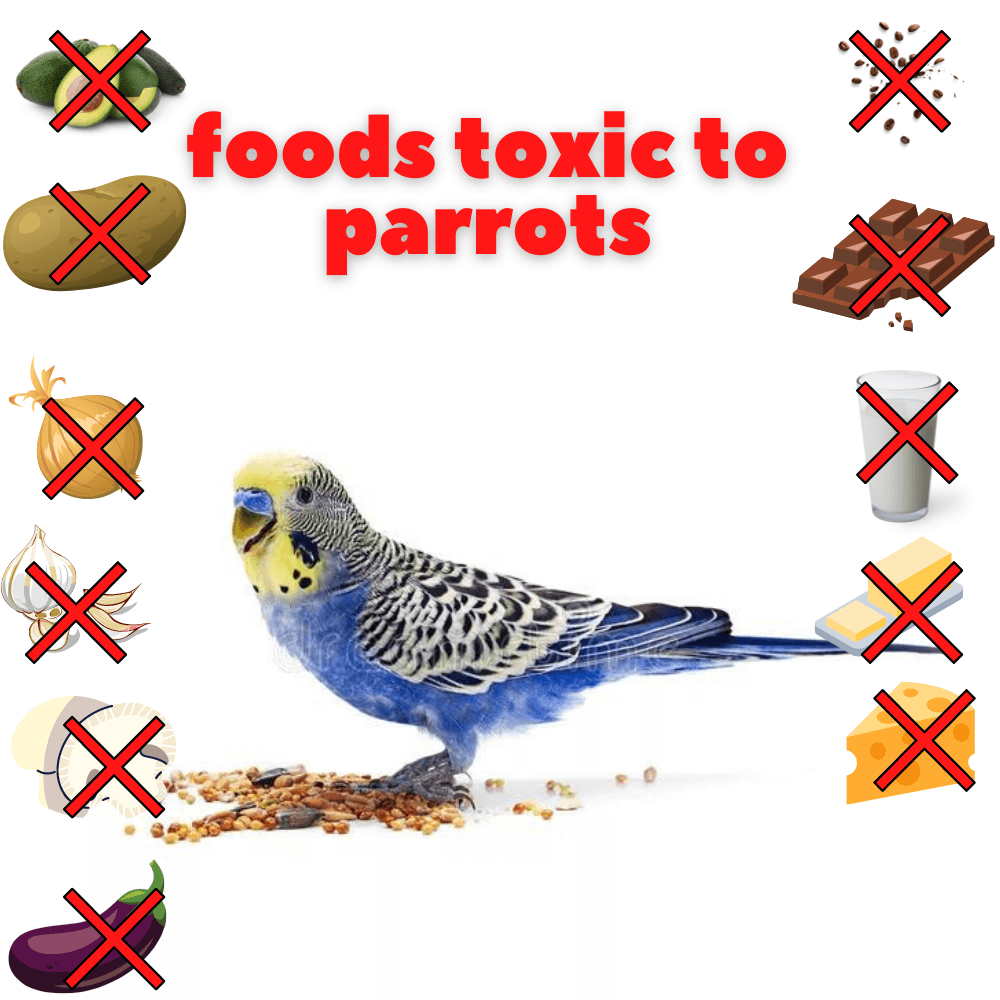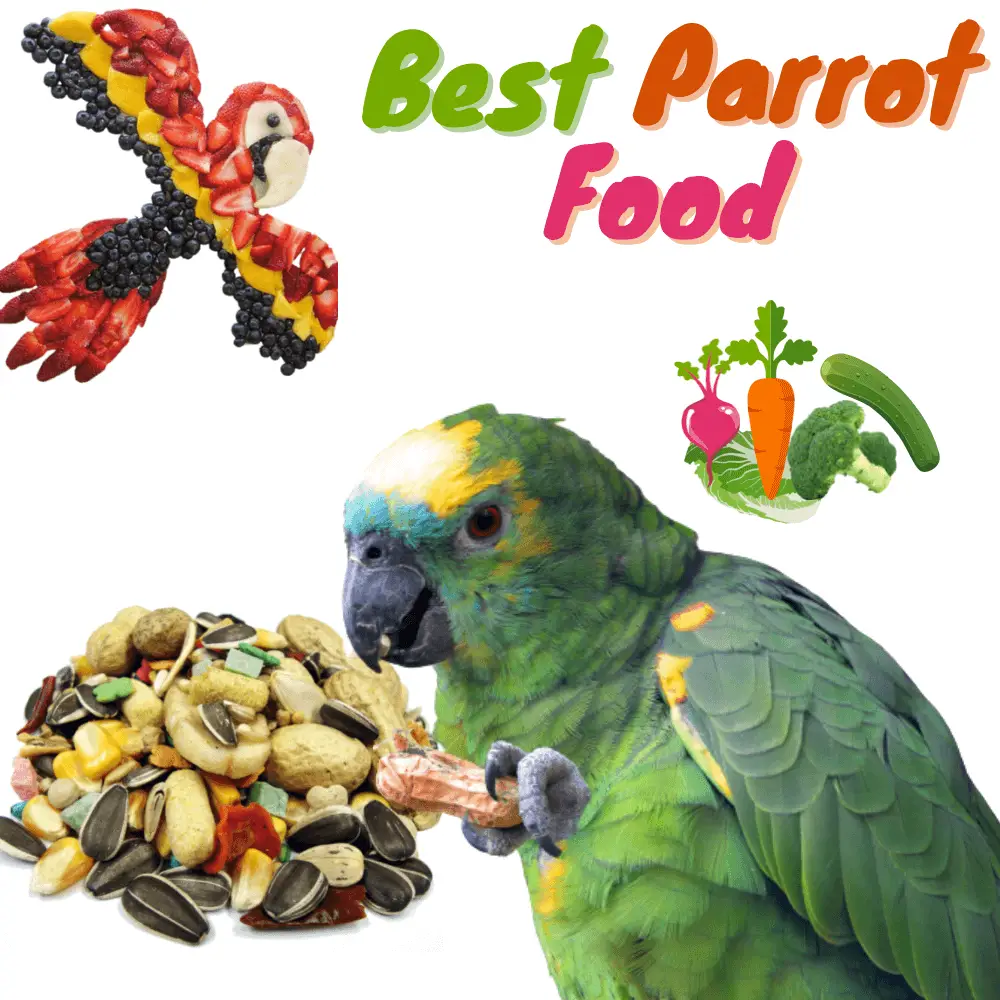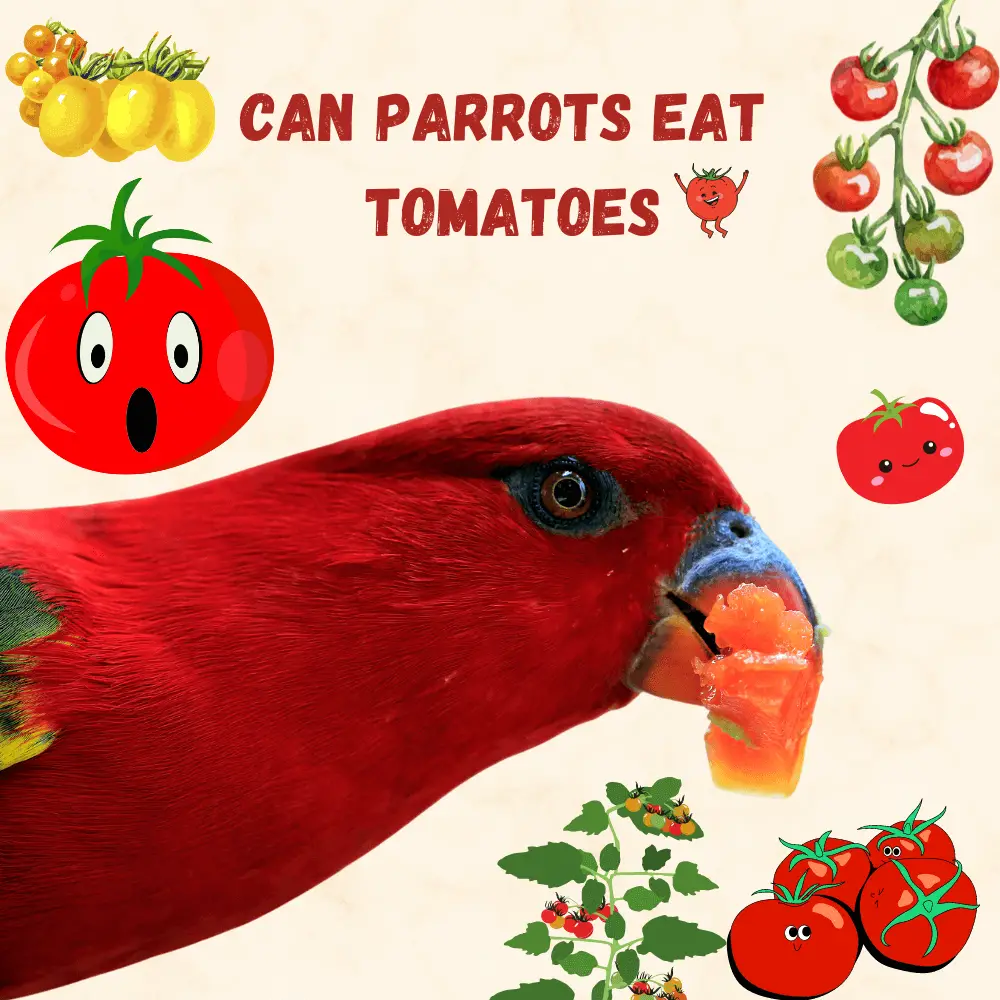Can parrots eat tomatoes: If you are wondering if parrots can eat tomatoes, know that the answer is neither yes nor no.
Find out here what are the requirements for a pet parrot to eat this fruit.
Can parrots eat tomatoes? You have surely wondered if you live with an exotic bird. Although fruits and vegetables are essential in their diet, not all fruits and vegetables are suitable for parrots.
In the specific case of tomatoes, you have probably found contradictory information on the internet: some say yes, and others say no. So what is it really? The expert opinion also varies, it is not possible to give an absolute answer. Indeed, certain considerations must be taken into account.
Are tomatoes good for parrots?
Parrots are omnivores. However, with the exception of a few insects found in the wild, their diet is strictly seeds, fruits, and vegetables. In captivity, the vegetables they usually eat may not be available, raising questions about their diet.
Tomato is a source of vitamins and minerals beneficial to the body. Specifically, it contains vitamins C, B, and E, beta-carotene, folic acid, and minerals, such as potassium, magnesium, iron, and phosphorus. These nutrients provide benefits to parrots.
So can they eat tomatoes? The answer is yes, although excluding it from the diet when in doubt will not harm them either. As with any food, they should not consume too much either.
What types of tomatoes are toxic to parrots?
However, it is necessary to qualify the answer. The tomato contains solanine, an alkaloid present in some nightshade plants, mainly in the leaves, fruits, and tubers.
It is a substance with a bitter taste and pesticidal properties. It is part of the plant’s defense system against insects and other animals.
Solanine is toxic to parrots, but only green tomatoes contain a high amount of this substance. As the fruit ripens, the concentration of solanine decreases. Thus, parrots can consume ripe tomatoes, because they do not have enough solanine to make them sick.
If you doubt the amount of tomato your parrot can tolerate, it is best not to give it to him or to give it to him very occasionally.
Green tomatoes should never be given to parrots, as ingestion may cause damage to the digestive system and even anemia, as solanine has a hemolytic effect. The dose needed to cause poisoning to a parakeet depends on the amount of tomatoes it eats and its size.
What foods are toxic to parrots?

Other foods are prohibited for these birds. The most important are:
- Sugar
- Coffee and energy drinks
- Alcohol
- Chocolate
- Milk
- Egg
- Snacks prepared for humans
- Attorney
- Onion
- Eggplant
- Parsley
- Uncooked legumes
- Uncooked tubers
- Meat
- Mushrooms
Healthy food for parrot

Diet is a key factor in maintaining the quality of life and ensuring protection against possible diseases or harmful events, such as stress or sudden climatic changes. In addition, the effect of feeding will be clearly reflected in the plumage of parrots, their vitality, and their character.
Always try to mimic the parrot’s diet in the wild, so that it gets all the nutrients it needs. A parrot’s ideal diet consists of the following:
- Seed mix: This mix should make up about 60% of the total food the bird eats throughout the day. A good mix contains at least 12 different seeds. Sunflower seeds should be reserved as rewards.
- Fruits, legumes, and vegetables: the remaining 40% must be made up of fruit salad, soaked legumes, and fresh vegetables. It should be noted that some vegetables can be toxic to parrots.
- Nuts: these dried fruits provide minerals and vegetable fats beneficial to parrots, but they must be administered as a treat, on an occasional basis.
Parrots should be offered 2 meals a day, one in the morning and one in the afternoon. This is to mimic the habits of wild parrots, which typically feed first thing in the morning and before dark.
There are also food mixes designed for parrots. However, each case must be assessed individually.
A balanced diet will not only keep the bird healthy but will also save you many trips to the vet. As always, your best weapon will be prevention.
If you have any doubts about the toxicity of the tomato, substitute it with another fruit. Also, keep in mind that caring for an exotic animal in captivity comes with a lot of responsibility.

